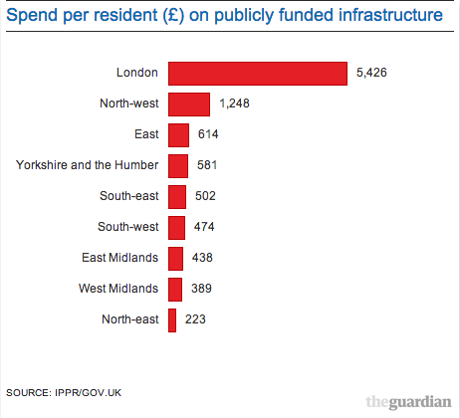CyclopsRock
Member
Well, it sounds like you've already made up your mind, but I'll attempt a very brief explanation anyway. The what part is much easier than the why.
Put rather simplistically, European Union 'regional policy' basically describes a pooled trans-European grant funding system targeted towards investment proposals designed to stimulate economic growth and regeneration in comparatively deprived or otherwise economically-lagging areas of Europe. This is often called "cohesion" - the idea that the EU should work to lift-up the drag on the European economy and ameliorate internal disparities; to foster integration within economies, not just between them.
It's often pretty practical stuff - training workers, increasing industrial capacity, (literally) building bridges, and so on. Project approval generally has some (perhaps theoretical?) link to wider EU policy objectives; for example, you can find many examples of the EU funding scientific or industrial research, in line with the EU's stated aim of promoting European competitiveness on the global stage. Other times it's about providing coordinated financing for economic clusters that span national borders. Projects range from installing broadband infrastructure in rural Lithuania, to expanding the capacity of Italian port, to accelerating the construction of tram lines in Manchester.
I guess you could say it's vaguely like a prototype European tax-and-spend system, in that we're all paying into a pot that could potentially fund public works anywhere within the EU - except, of course, that it's member-state fees instead of individual taxes. You may feel that there's no reason for the EU to do this; that states could effectively carry out their own regional policies, as indeed many of them already do. But I see no harm in adding a supplementary European dimension; it is, at the least, an important experiment, given that regional disparities in some parts are actually increasing.

Yeah, that just sort of sounds like a bunch of helicopter drops with the intention of redistributing wealth. Which is nice if you're into that. It does seem like a limited number of people benefitting for something that every citizen in the EU is paying for, though.
As for the budget stuff re the UK, for ya'll who aren't fans of the Telegraph or what not, here's a Guardian link:
http://www.theguardian.com/world/2014/oct/23/uk-european-commission-eu-budget-contribution
Grun said:Britain has been told it must pay an extra 2.1bn (£1.7bn) into the European Union budget by the end of next month because the UK economy is doing better relative to other European economies.
The demand is certain to be used against David Cameron by the growing camp who want the UK to quit the EU.
British and European commission officials confirmed that the Treasury had been told last week that budget contribution calculations based on gross national income (GNI) adjustments carried out by Eurostat, the EU statistics agency, had exposed a huge discrepancy between what Britain had been asked to contribute and what it should be paying, because of the UKs recovery.
The bombshell, first reported by the Financial Times, was dropped into the middle of an EU summit in Brussels where Cameron and 27 other leaders were mired in tough negotiations over climate-change policy and attempts to agree big reductions in greenhouse gas emissions by 2030.
A Downing Street source said: Its not acceptable to just change the fees for previous years and demand them back at a moments notice. The European commission was not expecting this money and does not need this money and we will work with other countries similarly affected to do all we can to challenge this.
The prime minister on Thursday evening conferred with Mark Rutte, the Dutch prime minister, as the Netherlands has also been ordered to pay more than 600m extra into the budget, while other countries such as Germany and France are likely to have excess contributions returned.
The commission told the various countries of the revamped figures on 17 October, EU officials said. They said the British had until 1 December to provide 2.1bn, roughly a fifth of the UKs annual net contribution to the EU.
Lol. Pay £1.7bn extra in 6 weeks for literally no return. That's some Wonga-level shit.

